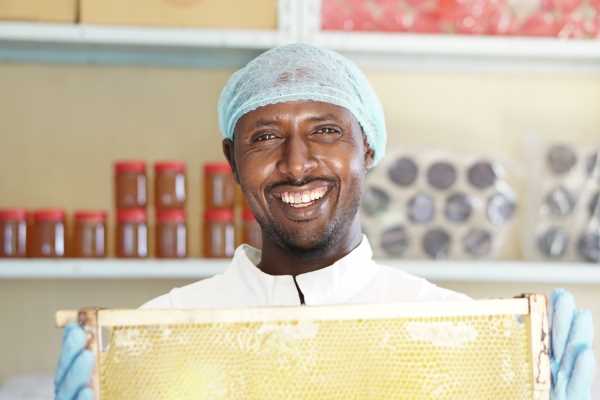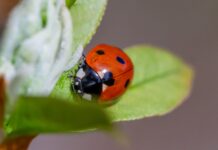By Dr. Chimimba David Phiri
Bees are tiny Food Heroes without which most of the food we eat would not exist. Bees, one of the most hard-working creatures, have benefited people, plants and the environment for centuries. Carrying pollen from one flower to another, bees and other pollinators enable the production of various crops with more variety and better quality, contributing to food security and nutrition.
Bees play a vital role in agriculture and agro-value chains as pollinators of cultivated and uncultivated plants. They are also essential for sustaining our biodiversity. More than 75 per cent of the world’s food crops depend to some extent on pollination, which is necessary for them to reproduce, critical for food production and human livelihoods, and directly links wild ecosystems with agricultural production systems. It is also estimated that the value of pollination services to global food production is worth up to USD 600 billion annually.
Bees and other pollinating insects improve the food production of 2 billion smallholder farmers worldwide, thus promoting global food security. Therefore, the pollination capacity of bees significantly contributes to boosting household incomes. The rising commercial value of honey makes bees a growing generator of income and means of food security for small-scale producers and forest dwellers in many developing countries, including those in Africa. Bee products and byproducts play a significant role in supporting the livelihoods of smallholder farmers and communities.
Despite all these advantages, however, the role of bees in sustaining forests, the livelihoods of smallholder farmers, and their contribution to the fight against world hunger remain poorly known and appreciated.
Even if bees and pollinators play a crucial role in food and nutrition security, they are now under threat. Present species extinction rates are 100 to 1,000 times higher than normal due to human impacts. Close to 35 per cent of invertebrate pollinators, particularly bees and butterflies, and about 17 per cent of vertebrate pollinators, such as bats, face extinction globally. The existence of bees has come under threat by several factors, causing their populations to decline. These factors include intensive and unsustainable agricultural practices; the loss, fragmentation and degradation of natural habitats; pests and pathogens of pollinators; crop and habitat loss; excessive use of pesticides; changes in land use; mono-cropping; reduced crop diversity; climate change and climate variability. These stressors affect bee health and the quality and quantity of bee products and services, incomes for beekeepers and the positive effect of bees on the environment.
If this trend continues, nutritious crops, such as fruits, nuts and vegetable crops will be substituted increasingly by staple crops like rice, corn and potatoes, eventually resulting in an imbalanced diet.
In response to this significant problem, actors engaged in agriculture and environmental protection are taking measures to preserve and protect pollinators, such as the hardworking bees. The Food and Agriculture Organization of the United Nations (FAO) plays a leading role in facilitating and coordinating initiatives such as the International Pollinators Initiative and other interventions that strengthen beekeeping and honey value chains. These efforts help ensure that communities develop alternative livelihoods to reduce the direct exploitation of forests and other natural resources. In this regard, the Africa Pollinator Initiative is helping to promote coordinated action to preserve and manage wild pollinators and encourage the development and implementation of sustainable agricultural practices.
Conservation of pollinators is essential for food security and biodiversity in Africa, a continent renowned for its biological diversity. Africa, however, has close to 347 million of its people suffering from severe food insecurity due to a myriad of problems, including conflict, climate variability and extremes, and economic slowdowns and downturns. In this regard, it is essential to recognize the role of beekeeping in providing employment and income-generating opportunities for rural smallholder farmers, women, and youth, while also ensuring a sustainable environment.
The suite of organisms providing pollination services in Africa to crop plants alone is estimated to increase the productivity of outcrossing crop plants by an average of 31%, with a return to the agricultural productivity of USD 23 billion per year. Yet public awareness of this essential ecosystem service remains very low.
Increased efforts are required to build greater diversity of pollinator habitats in agricultural and urban settings to protect bees and pollinators from threats to their abundance, diversity and health. Countries need to shift to more pollinator-friendly and sustainable food policies and systems. This shift includes implementing policies in favour of pollinators that promote biological pest control and limit the use of pesticides.
There should be an increased collaboration among national and international organizations, academic and research bodies and networks to monitor, research and assess pollinators and pollination services.
Awareness creation efforts should help conserve bees and manage them to maintain biodiversity, ensure ecosystem health and improve human livelihoods. Also, monitoring pollinator losses, assessing socio-economic values, pollinator identification, and understanding plant-pollinator interactions can help expand the knowledge base.
Beekeepers and other farmers should look towards reducing or changing the usage of pesticides, diversifying crops as much as possible, planting pollinator-attractive crops around the field, and creating hedgerows. They need to utilize innovative practices that integrate local and scientific knowledge and experience, to make food resources and shelter continuously available to pollinators.
Sustainable agriculture is instrumental as it can reduce the risk to pollinators by helping to diversify the agricultural landscape and building ecological processes as part of food production. Sustainable beekeeping practices should be encouraged to reduce rural poverty, increase the resilience of small-scale beekeepers, obtain high-quality products, and maintain environmental biodiversity.
Protecting bees and other pollinators are essential for the future of food in Africa and the world!








